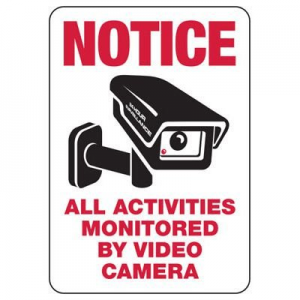
Being a manager isn’t for the faint hearted. Perhaps the only responsibility more difficult is being a parent. Managing and leading people comes with many headaches and challenges. It is a noble profession, but doing it well isn’t easy. The hands-off manager sitting in the mahogany corner office with feet up on the desk is no more.
Great managers set the example for others to follow. They ensure work gets done properly and on time. They ensure people have the resources and help needed to achieve the organization’s goals. They have an extensive job description including exhorting, coaching, enabling, encouraging, motivating, managing, and assimilating.
Great managers also have another very important responsibility. They have to know their business. They have to know their people and what they are doing. They have to know what is working well and what isn’t. They have to understand the big picture as well as the operational details. They have to address their organization’s problems as well as leverage their opportunities.
This isn’t to suggest that great managers are micromanagers. Micromanaging is controlling. Micromanaging is telling people what to do. In contrast, being informed is knowing the workings of the organization. Being informed is asking and knowing what is happening in the organization.
Great managers empower their people to do their work. They give employees the coaching, support, and resources needed to be self-sufficient, but they also check in. Delegation isn’t abdication. Great managers follow up. They hold people accountable.
If you are curious, enjoy getting into details, like knowing how things work, and appreciate tactical work, congratulations. You likely have little problem staying informed about the work of your organization. Your issue, however, may be letting go and letting others do the work. You may need to work at being the coach on the sidelines rather than the player on the field.
If, instead, you prefer staying out of the details, your issue may be getting more involved. You may need to get more engaged in the day-to-day work. Your organization’s janitor may know more about what is going on than you do. You may believe that staying informed is akin to watching over people’s shoulder. Or that being informed puts you in the role of a surveillance video monitor. Or that you aren’t supposed to be in the details because you are in management. Maybe you need to rethink your management approach.
If you are typically hands-off, for example using business plans to guide your organization and relying on financial reports to keep you informed, realize that you are not materially involved. You are not informed. There are issues in your organization you have little insight into. There are projects going poorly that you don’t know about. There are quality standards not being met, customers who are dissatisfied, employees who are underperforming, and best practices not being followed. There is money being wasted and opportunities being squandered. There are employees in your organization working really hard who are not receiving the encouragement and recognition they deserve.
If you want to know what is going on, going well, and not going well, listed below are a few principles to follow to stay informed without being a micromanager. Use these principles to know what is worth praising versus correcting. Use them to know what deserves a more in-depth review and what doesn’t. Use them to know when more responsibility is merited and when it isn’t.
- Build the mindset – Cultivate your awareness intelligence. Be curious about what people do and how they do it. Develop your observation skills by admiring how things get done.
- Delegate – Delegate desired outcomes with agreement on a plan of action that includes key milestones and deliverables. Agree to the method by which progress will be tracked.
- Track progress – Implement the method by which progress will be track. For example, set up regular 1on1s or team reviews. Or provide a template or checklist to be regularly updated.
- Check in – Maintain contact with your organization’s stakeholders—both internally and externally. Meet with those who depend on your organization including end-customers.
- Manage responsibilities – Maintain a record of your responsibilities. Track your initiatives, delegations, and deliverables. Include the status, next steps, and the issues being addressed.
Great managers work through their people, yet know what their people are doing. They are not merely involved in goal setting, strategy formulation, and business planning. They know the details of how plans and processes are being executed. They are informed.
Article by Mike Hawkins, award-winning author of Activating Your Ambition: A Guide to Coaching the Best Out of Yourself and Others (www.ActivatingYourAmbition.com), author of the SCOPE of Leadership six-book series on coaching leaders to lead as coaches (www.ScopeOfLeadership.com), and president of Alpine Link Corp (www.AlpineLink.com), a boutique consulting firm specializing in leadership development and sales performance improvement. For other articles on reaching your peak potential, visit: www.alpinelink.com/blog
